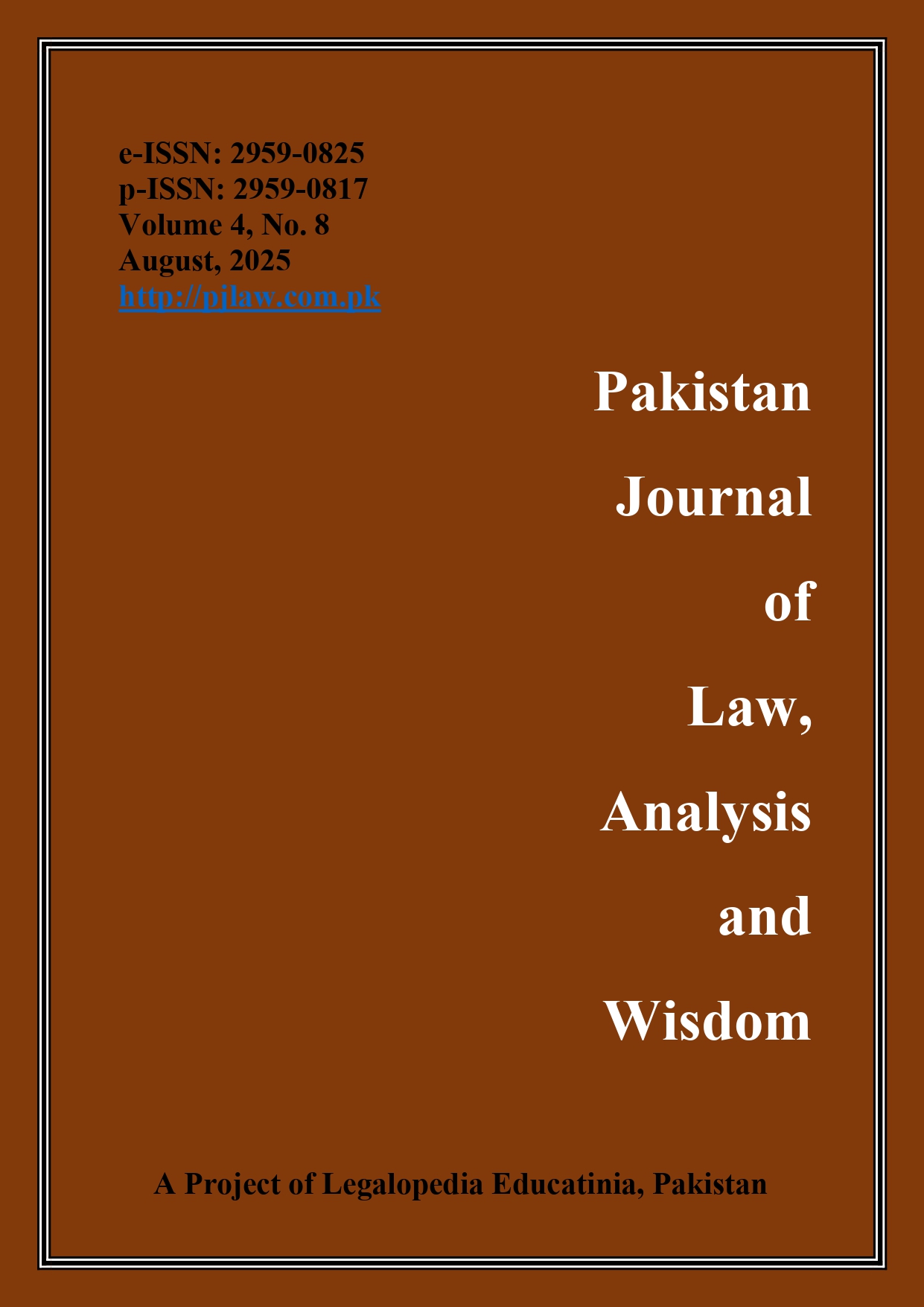Barriers to English Speaking Proficiency: Function of Teaching Practices in Primary Schools
Keywords:
English Language Teachers, Barriers to Developing English Speaking Skills, Dialogue-Based Activities.Abstract
This study was aimed to investigate the barriers to developing English speaking skills at primary school. In this study, the researcher examined the teaching practices of male and female English language teachers teaching at the primary level in Sargodha. The study was descriptive and survey design was used to collect data. A questionnaire was developed to examine the teaching practices. The data was collected from male and female primary school teachers from both public and private schools teachers in Sargodha. The data was analyzed in terms of demographics using frequency, mean, and the standard deviation. Descriptive statistics and t-tests were used to find out differences in mean values among genders and schools. It was found that speaking skills were not given as much attention, with many English language teachers (ELTs) rarely conducting dialogue-based activities, pronunciation drills, or fluency-enhancing exercises like tongue twisters. The gap suggests a need for more interactive speaking opportunities in classrooms. It was recommended that English language teachers may promote creativity through interactive teaching by incorporating more speaking tasks.
References
Ahmad, S., & Rao, C. (2013). Applying Communicative Approach in Teaching English as a Foreign Language: A Case Study of Pakistan. Journal of Education and Practice, 4(10), 35–40. https://www.iiste.org/Journals/index.php/JEP/index
Awasthi, J. R. (2003). Teacher Education with Special Reference to English Language Teaching in Nepal. Journal of NELTA, 8(1-2), 17–28. https://nelta.org.np/uploads/files/2019/Teacher_education
Brown, H. D. (2004). Language Assessment: Principles and Classroom Practices. Pearson Education.
Fojkar, M. D. (2005). Communication Barriers in English Language Classroom: A Study of Teachers' Perceptions in Pakistan. https://glrjournal.com/article/communication-barriers-in-english-language-classroom
Gilakjani, A. P. (2012). The significance of pronunciation in English language teaching. English Language Teaching, *5*(4), 96–107. https://doi.org/10.5539/elt.v5n4p96
Hakim, B. M. (2019). A Study of Language Anxiety among English Language Learners in Saudi Arabia. Arab World English Journal, 10(1), 64–72. https://files.eric.ed.gov/fulltext/EJ1287741
Housen, A., Schoonjans, E., Janssens, S., Welcomme, A., Schoonheere, E., & Pierrard, M. (2012). Conceptualizing and measuring the impact of contextual factors in instructed SLA–The role of language prominence. Université Libre de Bruxelles.
Huang, D. (2008). The implementation of communicative language teaching: An investigation of students’ viewpoints [Master's thesis, University of Wisconsin- Platteville].
Huo, X. (2020).Is There Science Beyond English? Initiatives to Increase the Quality and Visibility of Non-English Publications Might Help to Break Down Language Barriers in Scientific Communication. https://www.researchgate.net/publication/6535168
Leonard, K. (2018). Communication Barriers in English Language Classroom: A Study of Teachers' Perceptions in Pakistan. https://glrjournal.com/article/communication-barriers-in-english-language-classroom-
Musabal, R., &AbdAlgane, M. (2023). Exploring the Obstacles EFL Learners Encounter in Classroom Oral Participation from the Perspective of Tertiary Level Instructors. https://www.researchgate.net/publication/370832862
Namdeo, B., & Rout, J. (2016). Communicative language teaching: A study to ascertain its applicability in a technical institution. International Journal of English Language, Literature and Humanities, *4*(6), 598–607.
Ndethiu, S. M. (2019). Effective Classroom Communication. https://www.researchgate.net/publication/338253705
Ozmen, K. S., &Atay, D. (2016). The Communication Barriers between Teachers and Parents in Primary Schools. https://www.researchgate.net/publication/316475271
Paik, H. S. (2008). Globalization: A Brief Overview. International Monetary Fund. https://www.imf.org/external/np/exr/ib/2008/053008.html
Pathan, M. M. (2013). Communication Barriers in English Language Classroom: A Study of Teachers' Perceptions in Pakistan.
Richards, J. C. (2008). Teaching Listening and Speaking: From Theory to Practice. Cambridge University Press
Schwartz, R. (2005). Communication Barriers in English Language Classroom: A Study of Teachers' Perceptions in Pakistan. https://glrjournal.com/article/communication-barriers-in-english-language-classroom-
Shahreena et al. (2021).Challenges Encountered by English Teachers at the Elementary School Level in Pakistan: An Investigative Study of Government and Private Schools. https://www.researchgate.net/publication/391596358
Suwartono, T. (2006). The implementation of the communicative approach in Kampung Inggris, Pare, Kediri. Lingua: Jurnal Ilmu Bahasa dan Sastra, *1*(2), 1–10.
Thornbury, S., & Slade, D. (2006). Conversation: From Description to Pedagogy. Cambridge University Press.
Usman, M. (2019). Communication Barriers of English Teachers and Students at Private and Public Sector Intermediate Colleges https://www.researchgate.net/publication/387945697
Yusuf, Q. (2012). The use of communicative language teaching in Indonesia: A study at the English department of a state university in Padang, Indonesia. Lingua Didaktika: Jurnal Bahasa dan Pembelajaran Bahasa, *6*(1), 1–16.
Zhang, L. (2009). Communicative language teaching in a Canadian school in China: A case study of an English language teacher’s experience and perspective [master’s thesis, Queen's University].
Downloads
Published
Issue
Section
License
Copyright (c) 2025 Fahad Hussain, Mushtaq Ahmed Malik, Ahmad Bilal Cheema

This work is licensed under a Creative Commons Attribution-NonCommercial 4.0 International License.











 LEGALOPEDIA EDUCATINIA (PVT) LTD
LEGALOPEDIA EDUCATINIA (PVT) LTD